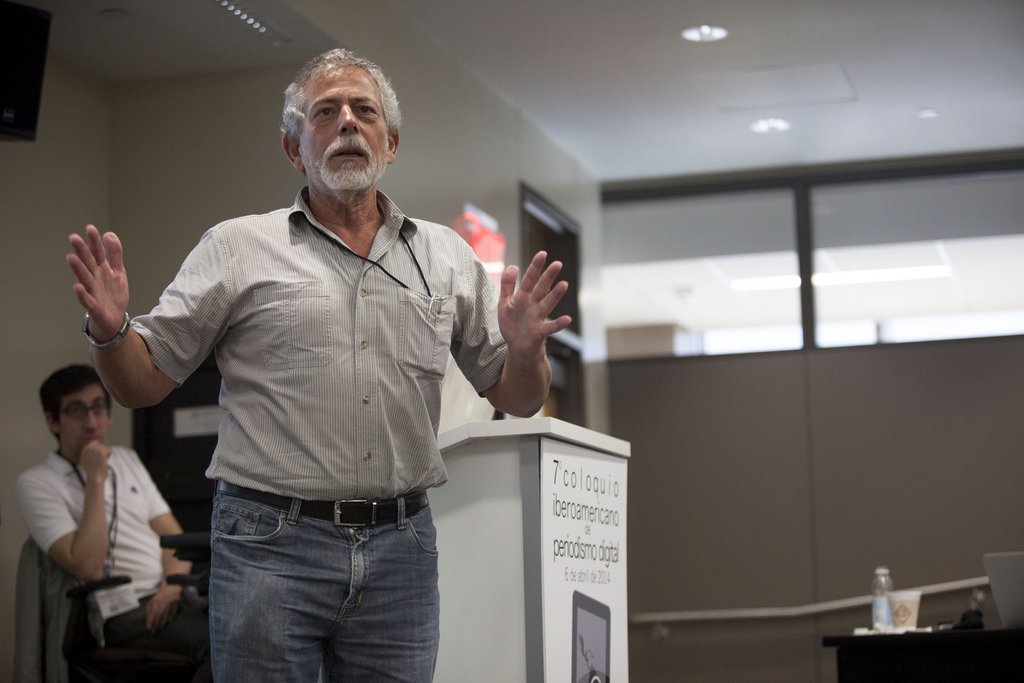
Las razones por la cuales no acudiré a la citación del Congreso de la República @PanoramaPTV @congresoperu pic.twitter.com/7VqjQ6Dsw4
— Rosana Cueva (@RosanaCuevaM) July 12, 2018
Association
In the province of Manu; the harakbut indigenous community was forced to leave their homes after being subject to harassment and death threats by illegal miners. According to Federación Nativa del Río Madre de Dios y Afluentes (National Federation of the Madre de Dios River, FENAMDA), this happened after a police operation against illegal mining at the beginning of June 2018 where authorities found non-authorised machinery performing deforestation work. Althought a few people were arrested during this operation, they were later released.
In a separate incident, on 20th July 2018, the president of rondas campesinas (peasants patrols), Isaac Huamán, was threatened after the organisation issued a public statement on 10th July to reject the development of the Río Branco mining project in the community. Huamán stated that a few days after the statement was issued, two men went to his home and intimidated his family. One of the man reportedly said: "you don't know who you are dealing with".
Between the 4th and 9th June 2018, the Observatory for the Protection of Human Rights Defenders held an international fact-finding mission to evaluate the situation of human rights defenders in Perú. In the report, the Observatory identified five causes for defenders’ vulnerability: the constant references by the media and authorities to human rights defenders as "agitators and to human rights organisations as defenders of terrorists"; the regressive constitutional and legal amendments that reduced protection for citizens; the criminalisation of the work of human rights defenders; the role of the security forces which does not comply with international human rights standards, particularly in the mining region where police acts in favour of business groups as a result of agreements between them and finally, the lack of a state protection mechanisms or public policies to protect human rights defenders.
#Peru: Human rights defenders stigmatised, criminalised and repressed - Preliminary findings of @OBS_defenders international fact-finding mission. Full statemente available here: https://t.co/pg0x4QxFOa pic.twitter.com/xcxp3KbKV7
— The Observatory (@OBS_defenders) June 26, 2018
"En toda sociedad democrática, el periodismo de investigación previene el abuso y cuando el abuso se da, lo revela, lo expone, lo denuncia y hace posible que la sociedades lo puedan remediar": Gustavo Gorriti sobre el balance de #CNMAudios pic.twitter.com/M672vJPccR
— IDL-Reporteros (@IDL_R) August 8, 2018
Expression
Since 7th July 2018, investigative journalism site IDL-Reporteros began to publish a series of articles revealing alleged acts of corruption in the Peruvian judicial system involving supreme judges, ministers, members of Congress, business-people and journalists. The report entitled “Corte y Corrupción” (Court and Corruption) was the first one of the series of articles and it was published after the reporters heard several telephone wiretap recordings that they received from anonymous sources and were later verified by the organisation.
A few days after the publication was issued, on 10th July, a prosecutor arrived at the offices of IDL Reporteros to request the materials used in their coverage of alleged government corruption. According to IDL´s director Gustavo Gorriti, the prosecutor arrived without any warrant, and therefore the visit was suspended. Following this visit, over the course of a few days, authorities demanded three times that the news site reveal its sources and deliver material from its most recent investigation.
In addition, on 12th July 2018, journalists Gustavo Gorriti and Rossana Cueva director of the TV program "Panorama" on the Panamericana Television media outlet, who also disseminated the corruption piece, were summoned to an Extraordinary Session in Congress. Both journalists decided not to attend. Gorriti also added:
"We are revealing the deepest corruption in the highest levels of the justice system. People of the justice system are doing everything possible to counterattack supposedly using the law to try to see everything we have about them."
Since IDL-Reporteros began publishing its investigation, at least nine officials have resigned from their positions, according to El Comercio. Among them are the Minister of Justice, Salvador Heresi, the president of the Judicial Branch, Duberlí Rodríguez, the president of the Superior Court of Justice of Callao, Walter Ríos, and four of the seven councilors from the National Council of the Magistrature (CNM).
National and foreign journalists, media organisations and civil society have shown their support and solidarity with IDL Reporters. The Special Rapporteur for Freedom of Expression of the IACHR, Edison Lanza, recalled that "the confidentiality of sources is an essential element of the work of a journalist and of the role that society has conferred on journalists to report on matters of public interest".
It was reported that on 15th July the Prosecutor Office decided to rescind its request to the journalists to reveal their sources.